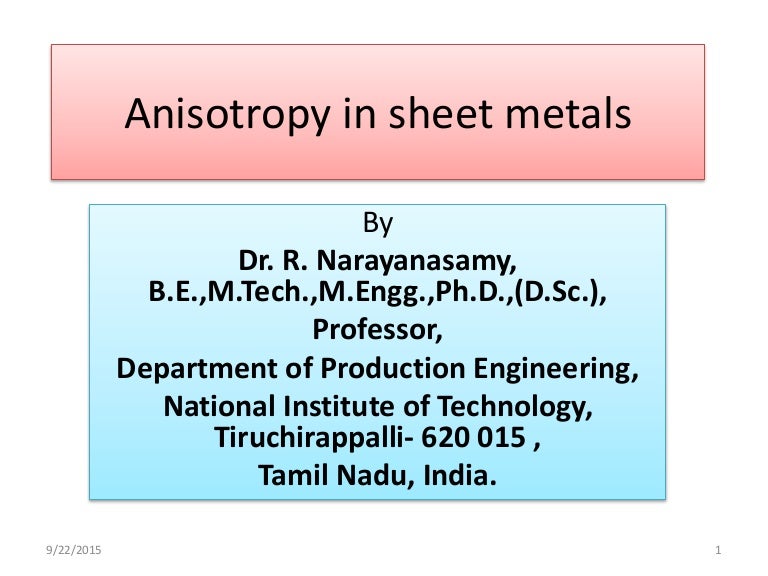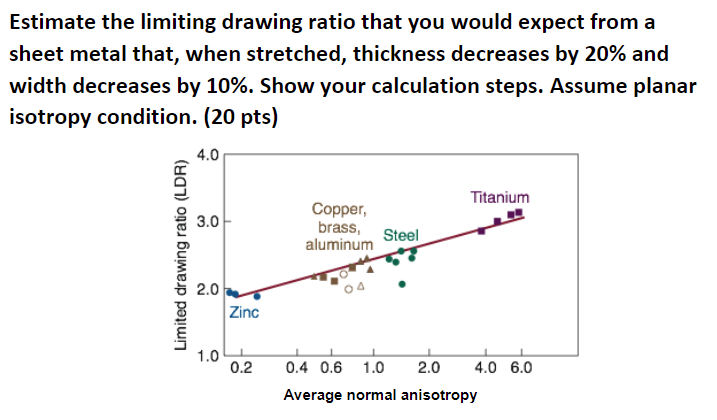Due to their crystallographic structure and the characteristics of the rolling process sheet metals generally exhibit a significant anisotropy of mechanical properties.
Anisotropy in sheet metals.
This scalar quantity is used extensively as an indicator of the formability of recrystallized low carbon steel sheets.
Mill aluminum union jack style perforated sheet metal offers a decorative way to complete your hvac door window hobby and cabinet projects.
σy 3 changes independent of σy 1 2 yield stress in direction 1 2 respectively.
After a brief review of classic isotropic yield functions recent.
A number of case studies are presented relating to mechanical and.
The md building products 36 in.
Another model for sheet metal forming proposed in vladimirov et al 2010 uses the standard multiplicative formulation with hyperelasticity and structural tensors to characterize anisotropy.
The lankford coefficient also called lankford value r value or plastic strain ratio is a measure of the plastic anisotropy of a rolled sheet metal.
The present work focuses on the identification of the planar anisotropy of sheet metals utilizing the femu approach.
It is easy to work with and very attractive in the home.
Anisotropy is described by normal anisotropy planar anisotropy which is related with crystallographic textures in rolled sheets the texture is symmetrical around the normal sheet.
Anisotropy in sheet metal can be useful in deep drawing and other forming processes.
Anisotropic sheet metal introduction when a bar plate or sheet of metal is manufactured a number of working processes are involved that impart a crystallographic texture to the metal component.
This paper reviews the most recent models for description of the anisotropic plastic behavior and formability of sheet metals.
Anisotropy in sheet metals.
During rolling the sheet develops anisotropy both in the plane of the sheet called planer anisotropy as well in the thickness of sheet called anisotropy ratio.
Abstract and figures sources of anisotropy in metals are discusssed as well as ways of interpreting and modelling this behaviour.
Anisotropy has effect on yield locus.
In these models it was assumed that the principal directions of orthotropy of the sheet metal remain orthogonal during deformation.
X 36 the md building products 36 in.









